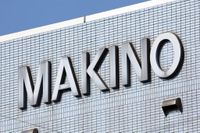Makino Milling Machine Co. has recently made headlines with its announcement regarding a proposed takeover bid of Nidec Corporation via a Take-Over Bid (TOB). This proposal, made official on March 18, 2025, represents Makino's strategic move to expand its operational scope and market influence.
The TOB is noteworthy because it reveals the growing competition and consolidation trends within the manufacturing and technology sectors, primarily driven by corporate ambitions to enhance their technological capabilities and market share. With the rapidly changing landscape of global commerce, this acquisition lays the groundwork for potential synergies between the two companies. Makino believes the merger could create value, improve operational efficiencies, and foster innovation.
According to ongoing discussions, Nidec has been tasked with responding to Makino's TOB request. Both companies are navigating through the complexities of this process, highlighting the meticulous nature of corporate acquisitions where negotiations and regulatory compliance are major factors at play.
Adding another layer to this corporate development, financial news reports indicate a shift in the Japanese yen's value. As of March 19, 2025, reports suggest that the yen has appreciated to the 149 yen level, indicating a minor adjustment in the Japan-US interest rate differential. This currency fluctuation can affect acquisition negotiations, as exchange rates play a significant role in foreign investments and acquisitions.
Furthermore, in a broader economic context, over 70% of large enterprises and members of the Keidanren are reportedly considering wage increases for the next fiscal year. This sentiment indicates optimism among various sectors in Japan as companies look to spur growth and enhance employee satisfaction amid a dynamic economic climate.
Nidec’s compliance with foreign capital regulations was also confirmed in recent reports, indicating that it has completed its procedures in Spain specifically related to the TOB process with Makino. This completion is crucial as it clears potential regulatory hurdles, facilitating smoother negotiations moving forward.
Additionally, reports suggest that the Japan Securities Dealers Association (JSDA) has appointed Hidetomo Nikko, formerly with Daiwa Securities, as its chairman after a four-year hiatus. This leadership change potentially reflects a shift in regulatory focus and governance within Japan’s financial markets.
In contrast to the corporate advancement, the economic landscape is complex, with reports of various firms adjusting their operational methodologies. For example, Daido Steel has announced that it is accelerating its decarbonization efforts by promoting its SCOPE 3 emissions calculations, while Audi is taking steps to reduce its workforce by 7,500 jobs by 2029, as agreed upon between labor and management. These developments emphasize the multifaceted responses of companies to current economic challenges.
Moreover, some companies are pausing operations temporarily; Suzuki, for instance, has decided to suspend some of its factories until March 21, 2025, to adjust to production timelines and market demands. Such operational strategies showcase the balancing act companies are performing to sustain profitability and operational viability during uncertain economic conditions.
The corporate landscape in Japan continues to evolve rapidly, highlighted by leadership changes at various firms. Company appointments such as Naoto Sakamoto as president of Kyoei Steel, Tomoyuki Tamura at K.F.C., and Kazuto Yamada at Japan Tissue Engineering indicate a trend of new leadership bringing different visions and strategies to respective companies.
In the midst of these changes, economic discussions remain prevalent. The gathering sentiment across the board appears to indicate a readiness to adapt and thrive in this fast-paced environment. As companies like Makino and Nidec navigate complex negotiations, the true effectiveness of these strategies will depend on how stakeholders respond to ongoing economic pressures and opportunities for growth.
As we look to the future, it remains vital for corporations to leverage their capabilities and adapt to evolving market conditions. Whether through mergers, acquisitions, or strategic partnerships, the resilience of Japanese firms will be critical in shaping their success in both domestic and international arenas.




